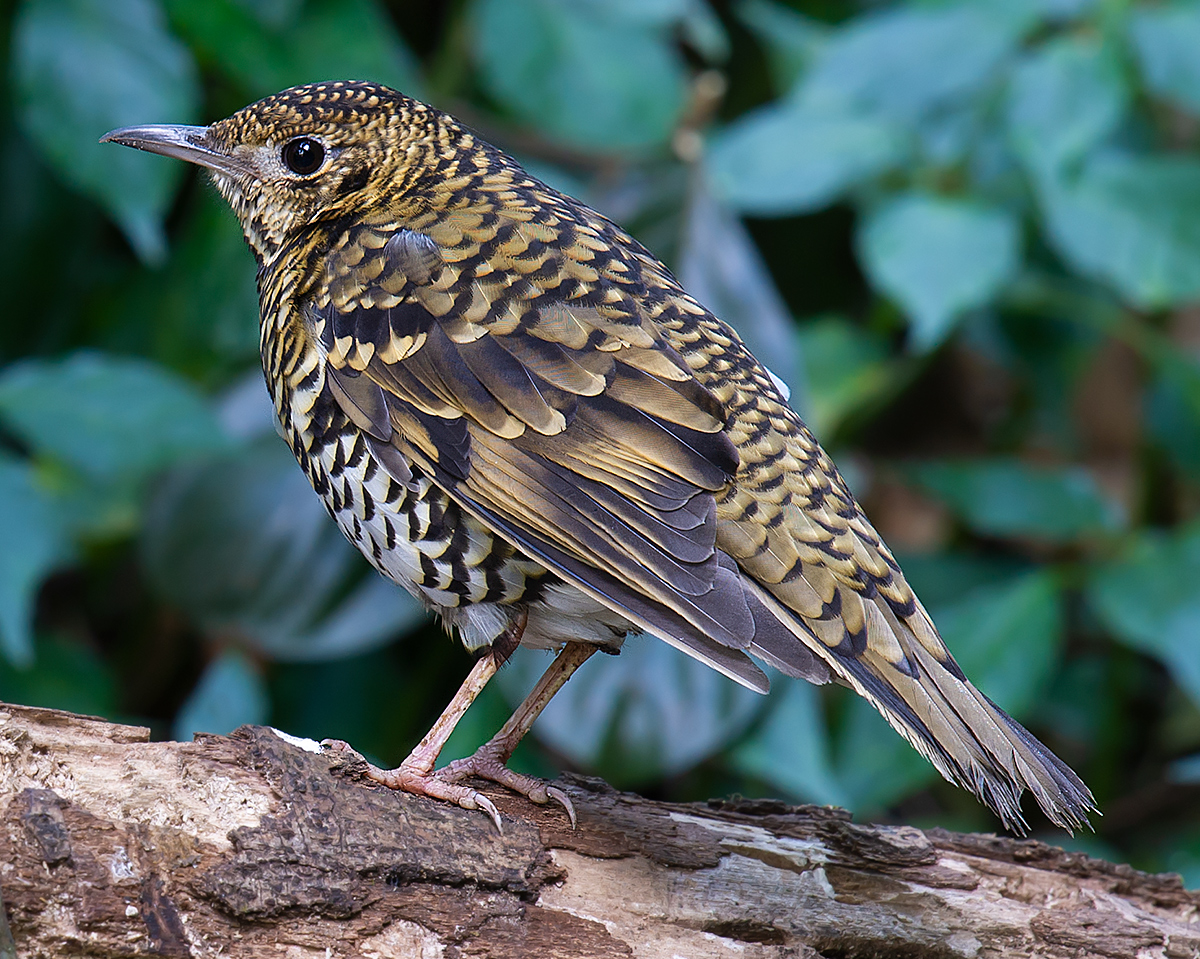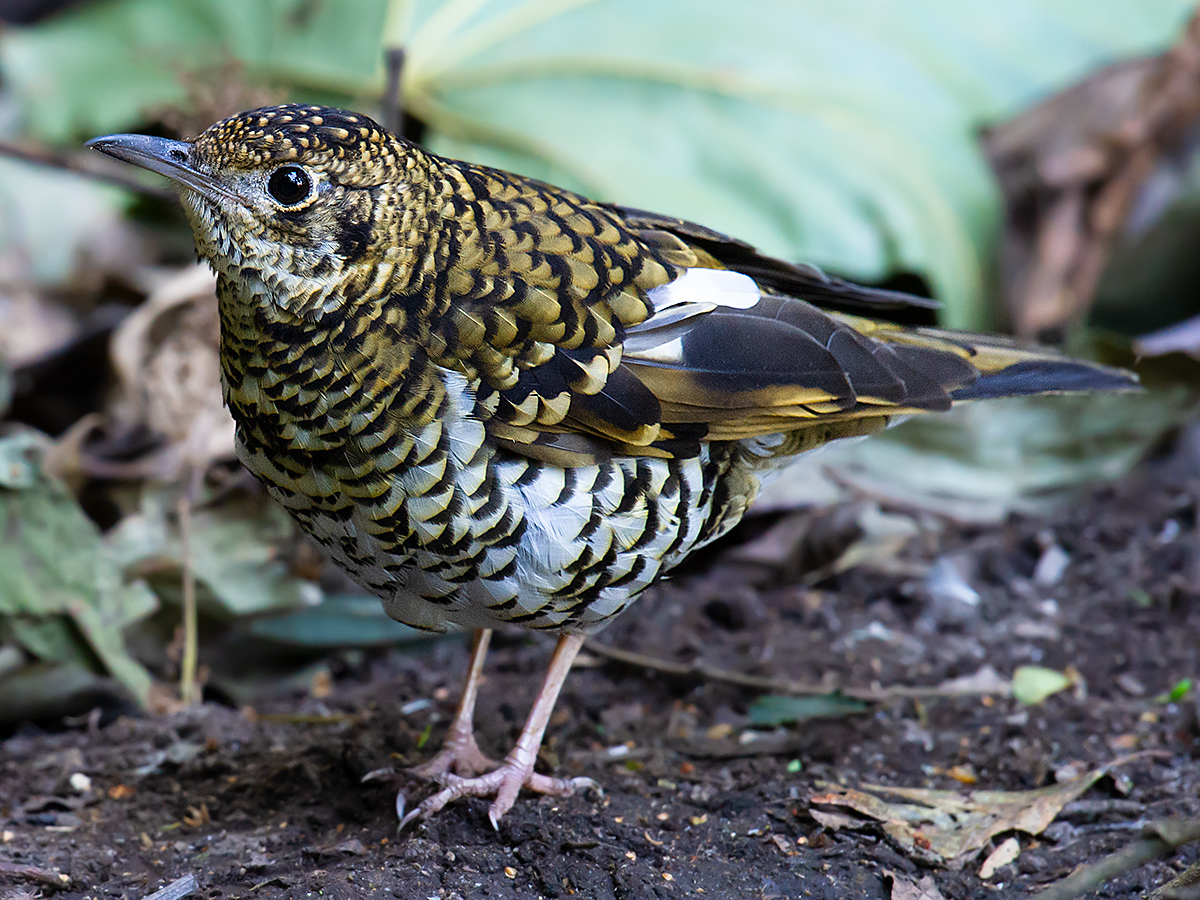

Scaly Thrush Zoothera dauma breeds to 3000 m (9,840 ft.) in Himalayas and adjacent high country, retreating downslope in winter. In parts of southern China, may mix with wintering White’s Thrush Z. aurea. HABITAT & BEHAVIOR Dark, damp areas, where feeds inconspicuously on forest floor, its scaly plumage providing effective camouflage. Feeds on insects and other invertebrates as well as berries. Creeps rather than hops. ID & COMPARISON Distinguishing from White’s Thrush not always possible in field. Typical dauma slightly smaller with shorter bill and less distinct auricular crescent. Bold and contrasting markings over most of plumage, giving scaly appearance. Head, upperparts golden brown, underparts white. Striking black and white underwing pattern diagnostic of Zoothera thrushes. BARE PARTS Long, dark bill with pale base; pink feet. VOICE Winter often silent. Breeding makes repeated long, mournful, one-note whistle, often at dawn or dusk. Grating alarm calls; thin contact call. Chuckles when flushed. — Craig Brelsford
THE GROUND THRUSHES AND ASIAN THRUSHES OF CHINA
shanghaibirding.com has research on all 10 species in the genera Geokichla and Zoothera in China. Click any link:
Orange-headed Thrush Geokichla citrina
Siberian Thrush G. sibirica
Alpine Thrush Zoothera mollissima
Sichuan Thrush Z. griseiceps
Himalayan Thrush Z. salimalii
Long-tailed Thrush Z. dixoni
White’s Thrush Z. aurea
Scaly Thrush Z. dauma
Long-billed Thrush Z. monticola
Dark-sided Thrush Z. marginata
ACKNOWLEDGEMENTS
Daniel Bengtsson served as chief ornithological consultant for Craig Brelsford’s Photographic Field Guide to the Birds of China, from which this species description is drawn.
